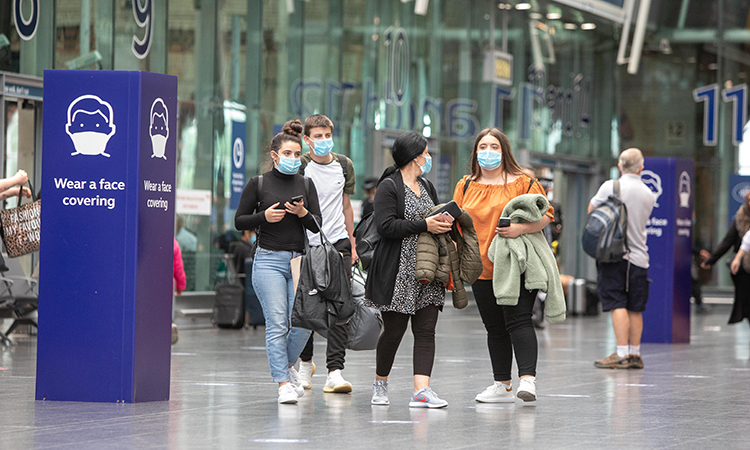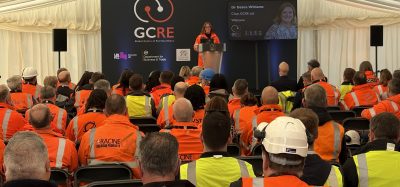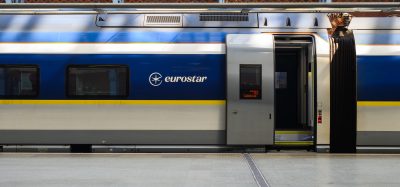UK survey finds cars will take precedence over public transport post-COVID-19
Posted: 14 April 2021 | Global Railway Review | No comments yet
A new survey by Campaign for Better Transport has found that cars will continue to be the preferred mode of transport for around half of UK journeys post-COVID-19.


Credit: Rail Delivery Group (RDG)
A new survey by the UK sustainable transport charity, Campaign for Better Transport, has revealed that cars will continue to be the preferred mode of transport for around half of journeys post-COVID-19, putting both the country’s climate targets and a fair economic recovery at risk.
The survey, which was carried out in March 2021, asked people what modes of transport they used before the pandemic for various activities and which they intend to use once all pandemic-related travel and leisure restrictions are lifted.
Findings showed that the UK adult population largely expects to choose to travel as they did before the pandemic, with private cars remaining the dominant form of transport for around half of trips for shopping (50 per cent versus 49 per cent before the pandemic), leisure (54 per cent versus 52 per cent pre-pandemic) and personal matters (53 per cent versus 52 per cent pre-pandemic).
The proportion of people who intend to use public transport once restrictions are lifted is very similar to the proportion who used it before the pandemic, but this is likely to be affected by the kinds of journeys that people need to make in the future.
Paul Tuohy, Chief Executive of Campaign for Better Transport, said: “Cars are the main contributor to carbon emissions and lethal air pollution, so returning to a car-dominated transport network is simply not an option post-COVID-19. Our research highlights that, unless the government does more to promote public transport and encourage its use, we cannot hope to reduce harmful emissions or build back in a way that is fair and sustainable.”
The research asked people what would encourage them to increase their use of public transport in the future. Less crowding (30 per cent) came out on top, followed by cheaper tickets (29 per cent), better routes (29 per cent) and more frequent (26 per cent) and punctual (22 per cent) services. Simpler payment options (e.g. the ability to ‘touch in and out’) would encourage 15 per cent of respondents, with 12 per cent saying that better access to real-time information would make them choose public transport more often.
The survey also asked people about their work plans post-COVID-19 and revealed that, whilst two thirds (65 per cent) of all of those in employment were working entirely from their place of work before the pandemic, just half (53 per cent) plan to do so after restrictions begin to ease.
Although the survey revealed that a similar proportion of people currently intend to use the train or bus to travel to work post-pandemic, the lack of affordable ticketing options for part-time commuters could result in an increase in car use or a delay to the economic recovery. At present, there are no flexible season tickets for people commuting part time, which must be addressed to encourage people to commute sustainably by rail where possible.
Perhaps most worryingly, the research revealed that a fifth (20 per cent) of UK adults say that nothing would currently encourage them to increase their use of public transport, rising to 29 per cent among those aged 55 and over. This shows that the UK government still has a long way to go in getting its messaging right and reversing the damage done during the pandemic to the perceived safety of public transport.
Paul added: “The government must act to ensure that people feel confident choosing public transport. Public transport, along with cycling and walking, should be the first choice for journeys, and the government must start getting that message out there. As well as flying the flag for public transport, the government could help to immediately boost passenger numbers and reduce car use by introducing flexible rail tickets for the millions of part-time commuters returning to our towns and city centres over the coming months.”
Responding to the findings of the survey, Robert Nisbet, Director of Nations and Regions at the Rail Delivery Group (RDG), said: “Britain’s rail companies want to support green economic growth across the country rather than a car-led recovery after the pandemic, and we’re helping people to travel with confidence with added services, extra cleaning and ventilation. As this survey shows, the pandemic has been rocket fuel to changing travel patterns and, while train operators are working with government on new flexible tickets for commuters, we want the underpinnings of the system to be rewired so that we can deliver the simpler, more flexible and better-value fares which passengers increasingly want.”







